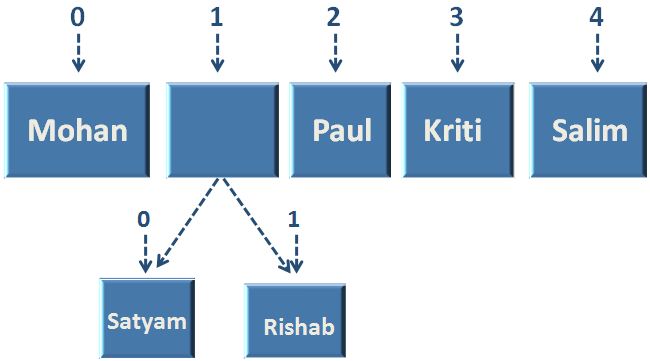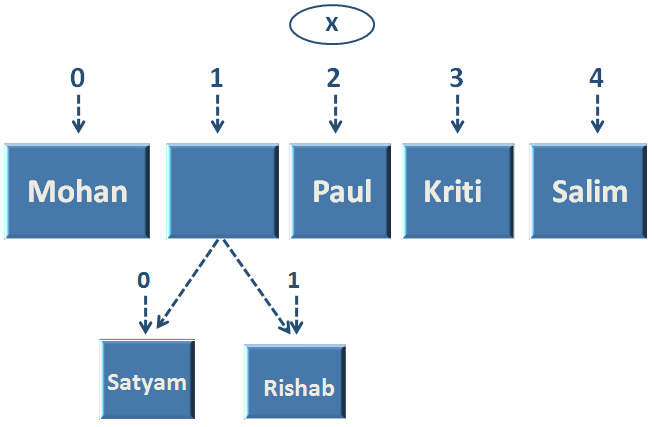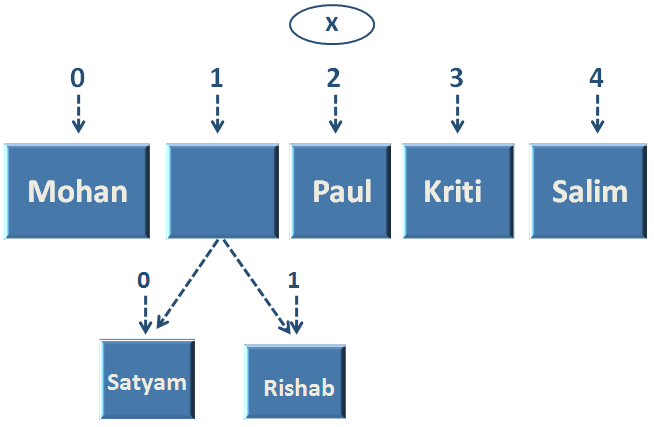

'Nested Tuples' are the one in which, a block of Tuple can contain another Tuple.
Say for example, let us take the below Tuple.

So, if you see the second location or index/position '1' of the above Tuple. There is another Tuple of two elements containing the names 'Satyam' and 'Rishab' stored in it.
This Tuple is an example of 'Nested Tuple'.
Let us create the above 'Nested Tuple'.
x = ("Mohan", ("Satyam", "Rishab") , "Paul", "Kriti", "Salim")
print("The first element of the nested Tuple is ", x[1][0])
print("The second element of the nested Tuple is ", x[1][1])
So, in the above example, we have declared a Nested Tuple and initialised it to 'x'.
Now, let us see the diagram,

And as we can see, the names 'Satyam' and 'Rishab' is located at the second location of 'x'.
So, to access 'Satyam', we need to goto index '1' of the Tuple and then goto the index of 'Satyam' i.e. Index '0'.
i.e. x[1][0]
And thus the print statement prints 'Satyam'.
Similarly, to access 'Rishab', we need to goto index '1' of the Tuple and then goto the index of 'Rishab' i.e. Index '1'.
i.e. x[1][1]
And thus the print statement prints 'Satyam'.
Now, what if we want to find out the first letter of 'Rishab' or the second letter of Paul.
x = ("Mohan", ("Satyam", "Rishab") , "Paul", "Kriti", "Salim")
print("The first letter of Rishab is ", x[1][1][0])
print("The second letter of Paul is ", x[2][1])
So, in the above example, we have declared a Nested Tuple and initialised it to 'x'.

Similarly, to access the first letter of i.e. 'R' of 'Rishab',

And thus the print statement, prints the first letter of 'Rishav'.
And the same way, the print statement prints the second letter of 'Paul', i.e. 'a'.